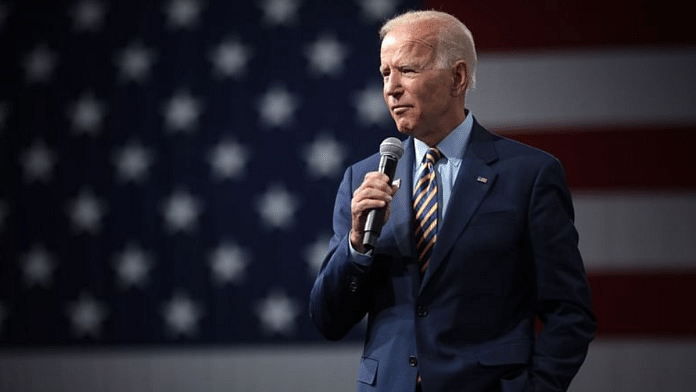New Delhi: India and China were among 23 major drug transit or producing countries named by US President Joe Biden in a Presidential Memorandum Friday. The document also urged China to strengthen its chemical supply chains, as it returned on the list after being removed by former President George W. Bush in 2005.
This comes after the US amended its definition of ‘drug source countries’ to include “source countries of precursor chemicals used to produce illicit drugs”. The Biden administration has also been cracking down on the fentanyl “overdose epidemic” rampant across the US and, earlier this month, announced more than $450 million in new funding to combat this crisis.
The document released Friday also names other countries, including Pakistan, Afghanistan, Myanmar, Colombia, Jamaica, Laos, Mexico, Nicaragua and Venezuela, among others, as drug trafficking countries.
Bolivia, Myanmar, and Venezuela have been recognised to have failed to “adhere to their obligations under the international counternarcotics agreements.
“The People’s Republic of China (PRC) has been identified as a major source country due to this change in legislation, and the United States strongly urges the PRC and other chemical-source countries to tighten chemical supply chains and prevent diversion,” the document stated.
The US President, however, clarified that a country’s presence on the foregoing list “was not necessarily a reflection of its government’s counterdrug efforts or level of cooperation with the United States.”
“For countries with large chemical and pharmaceutical industries, preventing precursor chemicals from being diverted to the production of illicit drugs is a particularly difficult challenge, including for the US and other countries with strict regulatory regimes to prevent diversion,” it added.
Also Read: Afghan, Pakistan cartels survived empires. Now they are drowning Indian Ocean region in drugs
China & India as global suppliers
India has remained on the list over the past few decades. However, Beijing was removed in a 2005 Presidential memorandum due to insufficient evidence that the country was “a major source zone or transit country for illicit narcotics that significantly affect the United States”.
Earlier this year, the US Justice Department reportedly charged four Chinese companies with trafficking materials to produce the painkiller fentanyl.
In the 2022 International Narcotics Control Strategy Report (INCSR) report, the US State Department stated that, due to the lack of “properly staffed and adequately equipped oversight” over China’s significant chemical industry consisting of roughly 160,000 chemical companies, “illicit drug manufacturers directly source or divert chemicals that facilitate drug hubs in Mexico and Burma.”
India, which is often referred to as “the pharmacy of the world”, reportedly supplies roughly 50 percent of Africa’s pharmaceutical demand, 40 percent of the US’ need for generic medicine and 25 percent of the UK’s requirement for all medicines.
According to reports, India also produces about 60 percent of global vaccines and 70 percent of the World Health Organization’s vaccines for essential immunisation schemes.
Responding to a question in the Rajya Sabha last month, Minister of State for Home Nityanand Rai revealed that New Delhi had signed 27 bilateral agreements, Memorandums of Understanding (MoU) with 16 countries and two agreements on security cooperation with different countries for combating illicit trafficking of Narcotics Drugs and Psychotropic Substances.
Afghanistan: ‘Not failed demonstrably’
On Afghanistan, the US document noted that the country no longer recognised Afghanistan to have “failed demonstrably” in controlling drug smuggling due to the country’s efforts in eradicating cultivation of opium poppy and production of illicit narcotics over the past year.
After returning to power in Afghanistan over two years ago, the Taliban reportedly banned the cultivation of poppy seeds last year due to religious beliefs. Earlier, Afghanistan reportedly used to produce more than 80 percent of the world’s opium made from poppy.
“However, I remain concerned by the continuation of the illicit drug trade within and originating from Afghanistan, including methamphetamine,” the document added.
(Edited by Richa Mishra)
Also Read: Meth manufacturing drugs worth Rs 390 cr seized in Mizoram, probe suggests trafficking to Myanmar



